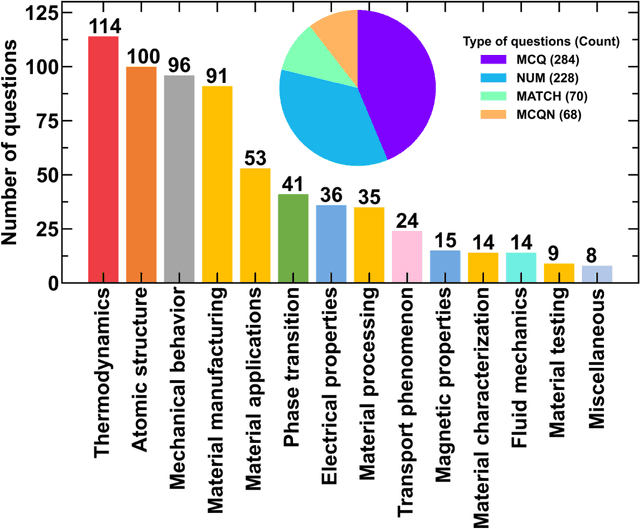MaScQA: A Question Answering Dataset for Investigating Materials Science Knowledge of Large Language Models
Paper and Code
Aug 17, 2023



Information extraction and textual comprehension from materials literature are vital for developing an exhaustive knowledge base that enables accelerated materials discovery. Language models have demonstrated their capability to answer domain-specific questions and retrieve information from knowledge bases. However, there are no benchmark datasets in the materials domain that can evaluate the understanding of the key concepts by these language models. In this work, we curate a dataset of 650 challenging questions from the materials domain that require the knowledge and skills of a materials student who has cleared their undergraduate degree. We classify these questions based on their structure and the materials science domain-based subcategories. Further, we evaluate the performance of GPT-3.5 and GPT-4 models on solving these questions via zero-shot and chain of thought prompting. It is observed that GPT-4 gives the best performance (~62% accuracy) as compared to GPT-3.5. Interestingly, in contrast to the general observation, no significant improvement in accuracy is observed with the chain of thought prompting. To evaluate the limitations, we performed an error analysis, which revealed conceptual errors (~64%) as the major contributor compared to computational errors (~36%) towards the reduced performance of LLMs. We hope that the dataset and analysis performed in this work will promote further research in developing better materials science domain-specific LLMs and strategies for information extraction.
 Add to Chrome
Add to Chrome Add to Firefox
Add to Firefox Add to Edge
Add to Edge